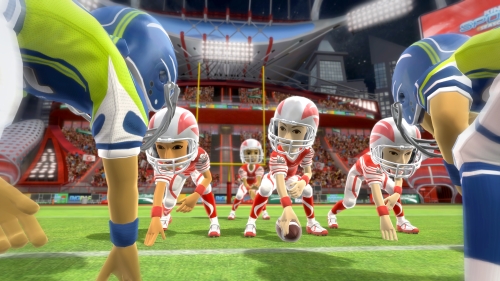September is football season. I am always happy when September rolls around because it is my favorite sport to watch on television. But as a young parent, I did not want my kids playing football, instead favoring basketball, soccer, and baseball. Football was and still is more dangerous and violent than these other sports. I have an alternative to football if you are a parent who does not want your children playing football: fantasy football. There are no tackles or concussions, and fantasy football is a thinking person’s game. And it welcomes girls as well as boys.
Fantasy football at its essence is an intellectual game that fosters following professional football players and their teams. If you are new to the game, think about it as a real-life game where professional football players accumulate points for your team. You don’t play football, but instead draft a team of actual players who get points for scoring touchdowns, catching a pass, or kicking a field goal. Learn more about the rules on one of the many great football fantasy websites such as NFL.com, CBS.com, ESPN.com, or Yahoo.com.
If you are trying to dissuade your children from the desire to play youth football, you may need some tools that include football. Because most kids are not going to become professional football players (the odds are about 1 in 4,500), you might find that leveraging your children’s interest in football to expand their academic skills, family relationships, or willingness to exercise to be helpful.
At LearningWorks for Kids, we are particularly interested in leveraging the use of technology to improve executive-functioning skills. Because fantasy football is almost exclusively played online, kids can make good use of their screen time while engaged with family and learning some problem-solving and communication skills.
Problem solving comes in the form of setting weekly lineups. Team owners need to find the best players on a weekly basis, determine if they have a good matchup in the real world of football, and observe how well their players have performed. They need to be flexible and solve problems when their players are injured and also make good choices if they select new players from the waiver wire. Handling frustration with players who underperform or when your competitors have a great day can also be good practice for the real world, where not everything goes as one would like.
Many other skills are required to be a good fantasy football player. Planning skills at the time of the draft help in selecting the best players while understanding the supply and demand issues of creating a team. For example, if you really want to have a good fantasy team, you should not pick Tom Brady with the first draft choice, as there are many better fantasy football quarterbacks and quarterbacks are not in short supply. Sustained focus is also practiced in fantasy football. Fantasy football players not only need to stay attentive for the two to three hour yearly draft but also need to be sure their players are not injured, have a bye week, or have been demoted if they want to accumulate the most points.
One of the best ways to get kids involved in fantasy football is to have them pair with an older sibling or other relative so they are part of a team. They could work with the other person, be directed to do some of their own research on different players they might draft for the team, and make decisions on a weekly basis as to which players should start for them. Each week they would have someone to talk to about how the team is doing and about making changes to get better.
Fantasy football is a thinking person’s game where there are no tackles, no concussions, and many chances for problem solving. It’s a game that builds brains. It is also a lot of fun, and I encourage parents to engage their kids in fantasy football.




